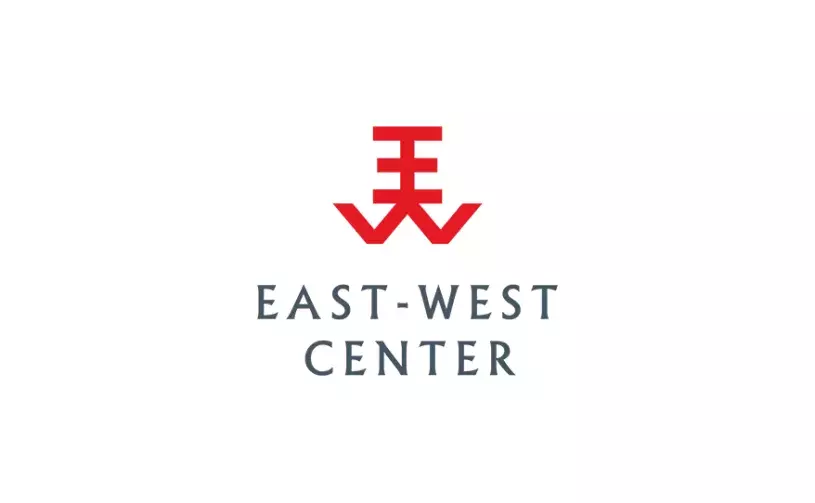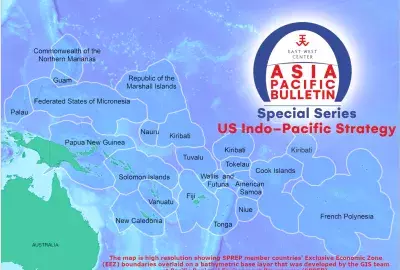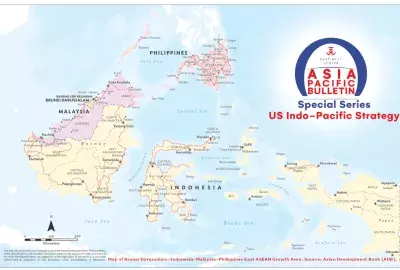Error message

|
Dr. David Scott explains that “An independence vote would have left a small south Pacific state open to Chinese economic blandishments, and weakened France’s position to deploy into the South China Sea.” |
In the south-west Pacific the French territory of New Caledonia, with a population of about 263,000, held an independence referendum on November 4, 2018. With a high turnout of 80% of eligible voters, 43.6% voted in favor of independence and 56.4% voted in favor of keeping the French link. The 2014 population census breakdown recorded 40.3% Kanaks, 29.2% Europeans, 18.7% other Pacific islanders, 8.6% mixed race and 2.3% other Asians. The challenge for the indigenous largely pro-independence Kanak community had been to push its own 40% block up with pro-independence votes from other non-European communities. Disappointingly for them, they were unable to do this to the extent needed. This result leaves the independence cause in New Caledonia weakened.
Another disappointed figure is the Polynesian leader of the Tavini Huiraatira Oscar Temaru, who actively campaigned during 2018 for the independence vote in New Caledonia. Temaru argued that a New Caledonia vote for independence would strengthen his stance for similar independence for French Polynesia. His logic was correct. Now, however, the New Caledonia vote for continued linkage with France likely reduces the pressure Temaru will be able to exert for independence in French Polynesia.
China is probably disappointed with the referendum result, which explains the lack of comment by China’s Foreign Ministry. An independence vote would have left a small south Pacific state open to Chinese economic blandishments, and weakened France’s position to deploy into the South China Sea. Already China has established a close relationship to the immediate northwest with the Melanesian Spearhead Group (MSG) member “states” of Fiji, Papua New Guinea, Solomon Islands, and Vanuatu, and also the pro-independence Kanak and Socialist National Liberation Front as a MSG member “party.”
Australia and New Zealand are probably happy with the result. Australia’s Foreign Ministry immediately announced on November 5 that “Australia congratulates the people of New Caledonia on their historic act of self-determination on 4 November 2018 and recognizes the important choice they have made to remain a part of France.” Having won the vote, France now has greater democratic legitimacy for its presence in New Caledonia, rather than appearing as an anachronistic colonial power. Consequently the New Caledonia vote enables Australia and New Zealand to pursue their growing strategic cooperation with France in the Pacific basin more easily.
The immediate significance of the pro-France vote is that France retains its position in the Pacific, and in the regional frameworks there. New Caledonia has geo-economic and geopolitical significance for France. The geo-economic importance is illustrated by the fact that New Caledonia holds around 20-25% of the world’s nickel reserves; and that its Exclusive Economic Zone is 1,422,543 km². New Caledonia has military, strategic and multilateral importance for France too. Around 8000 French troops and various naval units are based at New Caledonia. Since 2006 New Caledonia has been the headquarters for the biennial Croix du Sud (‘Southern Cross’) exercise organized by French forces and which now bring together France, Australia, New Zealand, Japan, the United States, and smaller Pacific island states in training in humanitarian assistance and disaster relief. Also since 2006 regional communications have been monitored by a signals interception unit at the New Caledonian naval airbase at Tontouta. Since September 2016 New Caledonia has been a member of the Pacific Islands Forum (PIF), and thus gives Paris a voice within the region. In a similar vein New Caledonia also attended for the first time the Pacific Islands Leaders Meeting (PALM) meeting between Japan and Pacific Islands states in May 2018. In preparing to attend the PALM meeting, the pro-French local administration in New Caledonia announced on May 17 “the total support of New Caledonia for a ‘Free and Open Indo-Pacific axis”’—a formulation echoing the U.S. and Japan’s approach to a rules-based order in the Indo-Pacific.
New Caledonia is a key element in France’s own recent stress on the “Indo-Pacific”; a strategic focus that was reflected in the Ministry of Defense paper titled La France et la Securité en Indo-Pacifique released in June 2018. Macron focused on New Caledonia’s Indo-Pacific role in his trip to New Caledonia in a significant speech made on May 5: "I believe in the future of this territory and I believe in the place that this territory occupies in a broader strategy that we must have throughout the region. France is a great power of the Indo-Pacific [une grande puissance de l’indopacifique], it is a great power of the Indo-Pacific across all these territories, New Caledonia, Wallis and Futuna, French Polynesia but also Mayotte and Reunion and the Southern and Antarctic Lands." This was why Macron described New Caledonia on Twitter on May 5 as being at the “heart of the Indo-Pacific” [au cœur de l’Indo-Pacifique], i.e. France’s Indo-Pacific.
In terms of location, New Caledonia is the key link between French holdings in the eastern Pacific (French Polynesia) and French holdings in the Indian Ocean. Take New Caledonia out of French jurisdiction and French Polynesia becomes very isolated with no effective links with Reunion: the other inhabited French possession located in the south-western Indian Ocean (the Kerguelen Islands in the south-central Indian Ocean being uninhabited). Thanks to New Caledonia’s “pro-France” referendum vote, this geopolitical continuum and strategic coherence for France as a meaningful Indo-Pacific actor has been maintained.
As to France’s “broader strategy” in the region, Macron referred to this in some length in his trip to New Caledonia: "I believe in the Indo-Pacific axis [l’axe indopacifique], I believe in this new strategy that we must take… It is first of all a geopolitical ambition, it is the one that I exposed three days ago in Sydney, there is a Paris–New Delhi–Canberra axis. This axis is extendable from Papeete [Polynesia] to Nouméa [New Caledonia]."
French retention of New Caledonia facilitates this Indo-Pacific axis between France and other Indo-Pacific democracies like India, and Australia, as well as Japan and the United States. New Caledonia also enables easier French deployments into the South China Sea. Macron’s reason for shaping an “Indo-Pacific axis” was shown in his warning in New Caledonia that “in this region of the globe, China is building its hegemony step by step… if we do not organize ourselves, it will be soon a hegemony which will reduce our liberties, our opportunities and that we will suffer.”
This Indo-Pacific focus underpinned Macron’s tweet on May 2nd 2018 to the people of New Caledonia that “we have a common history and a future to write with the whole Indo-Pacific region.” The referendum vote has secured this future for the time being.
|
Dr. David Scott explains that “An independence vote would have left a small south Pacific state open to Chinese economic blandishments, and weakened France’s position to deploy into the South China Sea.” |
In the south-west Pacific the French territory of New Caledonia, with a population of about 263,000, held an independence referendum on November 4, 2018. With a high turnout of 80% of eligible voters, 43.6% voted in favor of independence and 56.4% voted in favor of keeping the French link. The 2014 population census breakdown recorded 40.3% Kanaks, 29.2% Europeans, 18.7% other Pacific islanders, 8.6% mixed race and 2.3% other Asians. The challenge for the indigenous largely pro-independence Kanak community had been to push its own 40% block up with pro-independence votes from other non-European communities. Disappointingly for them, they were unable to do this to the extent needed. This result leaves the independence cause in New Caledonia weakened.
Another disappointed figure is the Polynesian leader of the Tavini Huiraatira Oscar Temaru, who actively campaigned during 2018 for the independence vote in New Caledonia. Temaru argued that a New Caledonia vote for independence would strengthen his stance for similar independence for French Polynesia. His logic was correct. Now, however, the New Caledonia vote for continued linkage with France likely reduces the pressure Temaru will be able to exert for independence in French Polynesia.
China is probably disappointed with the referendum result, which explains the lack of comment by China’s Foreign Ministry. An independence vote would have left a small south Pacific state open to Chinese economic blandishments, and weakened France’s position to deploy into the South China Sea. Already China has established a close relationship to the immediate northwest with the Melanesian Spearhead Group (MSG) member “states” of Fiji, Papua New Guinea, Solomon Islands, and Vanuatu, and also the pro-independence Kanak and Socialist National Liberation Front as a MSG member “party.”
Australia and New Zealand are probably happy with the result. Australia’s Foreign Ministry immediately announced on November 5 that “Australia congratulates the people of New Caledonia on their historic act of self-determination on 4 November 2018 and recognizes the important choice they have made to remain a part of France.” Having won the vote, France now has greater democratic legitimacy for its presence in New Caledonia, rather than appearing as an anachronistic colonial power. Consequently the New Caledonia vote enables Australia and New Zealand to pursue their growing strategic cooperation with France in the Pacific basin more easily.
The immediate significance of the pro-France vote is that France retains its position in the Pacific, and in the regional frameworks there. New Caledonia has geo-economic and geopolitical significance for France. The geo-economic importance is illustrated by the fact that New Caledonia holds around 20-25% of the world’s nickel reserves; and that its Exclusive Economic Zone is 1,422,543 km². New Caledonia has military, strategic and multilateral importance for France too. Around 8000 French troops and various naval units are based at New Caledonia. Since 2006 New Caledonia has been the headquarters for the biennial Croix du Sud (‘Southern Cross’) exercise organized by French forces and which now bring together France, Australia, New Zealand, Japan, the United States, and smaller Pacific island states in training in humanitarian assistance and disaster relief. Also since 2006 regional communications have been monitored by a signals interception unit at the New Caledonian naval airbase at Tontouta. Since September 2016 New Caledonia has been a member of the Pacific Islands Forum (PIF), and thus gives Paris a voice within the region. In a similar vein New Caledonia also attended for the first time the Pacific Islands Leaders Meeting (PALM) meeting between Japan and Pacific Islands states in May 2018. In preparing to attend the PALM meeting, the pro-French local administration in New Caledonia announced on May 17 “the total support of New Caledonia for a ‘Free and Open Indo-Pacific axis”’—a formulation echoing the U.S. and Japan’s approach to a rules-based order in the Indo-Pacific.
New Caledonia is a key element in France’s own recent stress on the “Indo-Pacific”; a strategic focus that was reflected in the Ministry of Defense paper titled La France et la Securité en Indo-Pacifique released in June 2018. Macron focused on New Caledonia’s Indo-Pacific role in his trip to New Caledonia in a significant speech made on May 5: "I believe in the future of this territory and I believe in the place that this territory occupies in a broader strategy that we must have throughout the region. France is a great power of the Indo-Pacific [une grande puissance de l’indopacifique], it is a great power of the Indo-Pacific across all these territories, New Caledonia, Wallis and Futuna, French Polynesia but also Mayotte and Reunion and the Southern and Antarctic Lands." This was why Macron described New Caledonia on Twitter on May 5 as being at the “heart of the Indo-Pacific” [au cœur de l’Indo-Pacifique], i.e. France’s Indo-Pacific.
In terms of location, New Caledonia is the key link between French holdings in the eastern Pacific (French Polynesia) and French holdings in the Indian Ocean. Take New Caledonia out of French jurisdiction and French Polynesia becomes very isolated with no effective links with Reunion: the other inhabited French possession located in the south-western Indian Ocean (the Kerguelen Islands in the south-central Indian Ocean being uninhabited). Thanks to New Caledonia’s “pro-France” referendum vote, this geopolitical continuum and strategic coherence for France as a meaningful Indo-Pacific actor has been maintained.
As to France’s “broader strategy” in the region, Macron referred to this in some length in his trip to New Caledonia: "I believe in the Indo-Pacific axis [l’axe indopacifique], I believe in this new strategy that we must take… It is first of all a geopolitical ambition, it is the one that I exposed three days ago in Sydney, there is a Paris–New Delhi–Canberra axis. This axis is extendable from Papeete [Polynesia] to Nouméa [New Caledonia]."
French retention of New Caledonia facilitates this Indo-Pacific axis between France and other Indo-Pacific democracies like India, and Australia, as well as Japan and the United States. New Caledonia also enables easier French deployments into the South China Sea. Macron’s reason for shaping an “Indo-Pacific axis” was shown in his warning in New Caledonia that “in this region of the globe, China is building its hegemony step by step… if we do not organize ourselves, it will be soon a hegemony which will reduce our liberties, our opportunities and that we will suffer.”
This Indo-Pacific focus underpinned Macron’s tweet on May 2nd 2018 to the people of New Caledonia that “we have a common history and a future to write with the whole Indo-Pacific region.” The referendum vote has secured this future for the time being.







